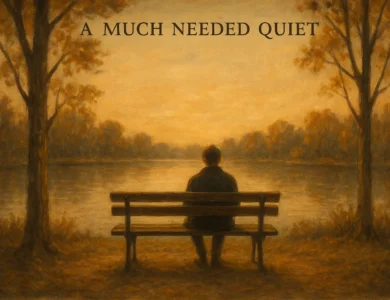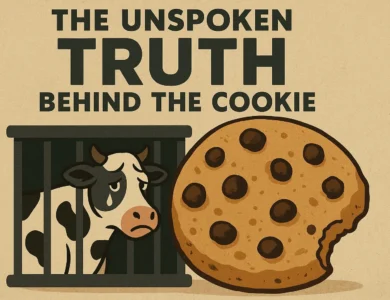
I recently inherited money from my mom. And my husband now expects me to pay for everything. Recently, we met up with his family at a restaurant for a celebration. It was going fine until I found out that I was expected to pay for everyone at the table. My husband’s mom said, “Well, now that you’re the rich one, it’s only fair you treat us, right?”
I smiled politely, but inside, something twisted. This wasn’t the first time something like this had happened. Ever since the inheritance, people around me had started acting differently—especially my husband, Marco.
At first, it was little things. He’d stop reaching for the bill at dinner. Then, he started suggesting spontaneous weekend getaways that, of course, I would cover. I kept justifying it. He’s my husband, we’re a team. That’s what I kept telling myself.
But that night at the restaurant, watching everyone order drinks and desserts like they were at a five-star resort—without even glancing at the menu prices—I realized something. I wasn’t a guest in this dynamic anymore. I had somehow become the wallet.
When the check came, it was over $600. No one flinched. Marco reached for his water glass. His sister laughed, “We should do this more often now that we have our own family sponsor!”
I paid. But something inside me snapped just a little.
On the drive home, I was quiet. Marco noticed. “What’s up? You seemed tense.”
I took a breath. “Why did you all assume I’d pay tonight?”
He shrugged. “You’ve got the money now, babe. It’s not like it’s a big deal.”
“It is a big deal,” I said, my voice calm but firm. “It was my mom’s life savings. She worked hard for that. It wasn’t meant to become a free-for-all fund.”
Marco rolled his eyes. “It’s not like we’re gambling it away. We’re just enjoying life a bit.”
I didn’t argue. I just looked out the window and let the silence take over.
That night, I couldn’t sleep. I kept thinking about my mom—how careful she was with money. How she skipped vacations so I could have school clothes. How she refused to buy herself new shoes when hers had holes. That money meant something to me. It wasn’t just cash—it was her effort, her love, her sacrifices.
And now I was blowing it on overpriced cheesecake and cocktails for people who never even asked how I was coping with losing her.
The next morning, I woke up early. I made coffee and sat at the kitchen table, scrolling through old messages from my mom. One popped up that I had forgotten about. It read: “Never let anyone make you feel guilty for protecting what you’ve earned, sweetheart. Not even family.”
It hit me like a ton of bricks.
Over the next few weeks, I started making quiet changes. I set up a separate savings account and moved a big chunk of the inheritance there—locked. Then I made a budget for myself. A realistic one. Just because I had more now didn’t mean I had to live like I was in a movie.
The final step? Boundaries.
I waited until a calm Sunday afternoon and sat Marco down. “Hey,” I began, “I want to talk about something serious.”
He nodded, sensing my tone.
“I’ve been feeling like… ever since the inheritance, there’s been this pressure. Like I’m supposed to cover everything now. And I’m starting to feel used.”
He looked surprised. “Used? I’m your husband. It’s our money.”
“No, Marco. It’s not our money. It was left to me by my mom. It’s tied to my name. Legally and emotionally. I want to use it wisely. And I want us to build our future together, but I can’t keep footing the bill for everything.”
He looked down, fiddling with the hem of his shirt. “I didn’t realize you felt that way.”
“Because I didn’t say anything. But I’m saying it now. I’m happy to share, to support us—but I’m not a bank. I need to feel respected in this relationship.”
He was quiet for a long time. “I guess I just thought… since you got that money, things would get easier.”
“They can. But easier doesn’t mean lazier. I don’t want resentment to build. So from now on, we split bills. Or we talk about big expenses before they happen.”
Marco nodded slowly. “Okay. You’re right. I got comfortable. Too comfortable.”
I appreciated his honesty. But I needed to see if he’d follow through.
For a while, things seemed better. He started paying for small stuff again—groceries, coffee runs. He even planned a weekend picnic that didn’t involve spending a dime. It felt like we were resetting. I allowed myself to hope.
Then, his brother called.
“Marco said you’d help us with a down payment for a new car,” he said casually over the phone.
I blinked. “What?”
“Yeah, just a loan, really. I mean, you’ve got that inheritance, and we’d pay you back.”
I hung up, stunned.
That evening, I confronted Marco. He admitted it. “I thought you’d say yes if I asked you later.”
I shook my head. “No, Marco. That’s not okay. You can’t offer my money to your family without even asking me.”
“But it’s just a loan—”
“That’s not the point. The point is you keep seeing this money as a solution to everyone’s problems except mine.”
He didn’t have a comeback.
That night, I slept in the guest room. It wasn’t to punish him. I just needed space.
In the morning, I wrote something down in my journal: If someone loves you for what you provide, not who you are, it’s not love—it’s dependence.
Things spiraled from there. Not dramatically. Quietly.
Marco didn’t fight. He apologized, sure. But something had shifted. I saw him more clearly now. I saw how, for years, I had been the emotional load-bearer in our marriage. And now, I was expected to be the financial one too.
We started counseling. I wanted to give it a chance. But in those sessions, he admitted he felt “emasculated” by me having more money. That he didn’t like how it made him feel.
“I didn’t ask for this money,” I told him gently. “I lost my mother. I’d trade every cent to have her back.”
Eventually, we stopped counseling. He said it wasn’t helping. I think he just didn’t want to change.
About six months later, I moved out.
It wasn’t dramatic. No yelling. No throwing clothes into bags. Just a calm conversation and a set of keys left on the table.
I moved into a small rental, not fancy, but mine. Peaceful. My own.
It’s been a year now.
Since then, I’ve started working with a financial coach. I’ve invested some of the inheritance into a small nonprofit that supports single moms going back to school—something my mom would’ve loved.
I’ve built a quiet, meaningful life. I have new friends. I go on walks. I sleep better.
One day, I ran into Marco at a grocery store. He looked surprised to see me, then sad.
“You look happy,” he said.
“I am.”
He nodded, paused, then said, “I didn’t realize how much I leaned on you until you weren’t there to lean on anymore.”
I didn’t say anything. I just smiled.
Walking out of that store, I realized something: the inheritance had shown me who really valued me, and who just valued what I could offer. That was the true gift.
We often think money changes people. But really, it just reveals them.
And sometimes, the check at dinner is more than a bill—it’s a wake-up call.
If you’ve ever felt taken for granted after doing something kind or generous, know this: it’s okay to set boundaries. It’s okay to protect your peace. And it’s okay to expect respect.
I learned that the hard way. But I’m better for it.
Thanks for reading. If this story hit home for you, feel free to like, share, or drop your thoughts in the comments. You never know who else might need to hear this today.
Read More: MY BABY WAS IN THE NICU…







